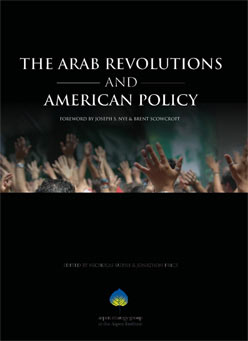Joseph DeMott is project manager of the Inclusive America Project, an initiative of the Aspen Institute Justice and Society Program.
|
US Supreme Court |
ECCC Trial Chamber |
During the rule of the Khmer Rouge from 1975-1979, an estimated 1.7 million Cambodians died from starvation, forced labor, torture, and execution. The Extraordinary Chambers in the Courts of Cambodia (ECCC) is an ad hoc Cambodian court with international participation, which has brought to trial those most responsible for the crimes committed under the Khmer Rouge regime. The ECCC aims to achieve some measure of justice for the victims of Khmer Rouge atrocities, promote national reconciliation, and strengthen the rule of law in Cambodia. The ECCC draws from the experiences of the Yugoslav war crimes tribunals and Rwandan war crimes tribunals.
At 6pm on Thursday, Nov. 7, the Institute’s Justice and Society Program will host “Trying Atrocity Crimes: The Khmer Rouge Trials, Transitional Justice, and the Rule of Law,” an invitation-only conversation with US Supreme Court Associate Justice Hon. Stephen Breyer (pictured above), and ECCC Trial Chamber Judge Hon. Dame Silvia Cartwright (pictured right). The conversation will be moderated by Justice and Society Program Director Meryl Chertoff. A live feed of the event will be broadcast at www.aspeninstitute.org/live.
Last week, the ECCC finished the first trial in Case 002, in which two former Khmer Rouge leaders, Nuon Chea and Khieu Samphan, stand accused of crimes against humanity. This trial focuses on the pair’s involvement in the regime’s forced movement of the population from Phnom Penh to the countryside and the mass execution of Khmer Republic soldiers at Toul Po Chrey following the Khmer Rouge takeover in 1975. A verdict is expected during the first half of 2014. The ECCC has already completed Case 001, in which Kaing Guek Eav, alias “Duch,” the director of the notorious Tuol Sleng (S-21) detention facility, was convicted of crimes against humanity and grave breaches of the 1949 Geneva Conventions. Duch is currently serving a sentence of life imprisonment.
The ECCC is the latest in a series of efforts by the international community to come to terms, through the legal process, with crimes against humanity and genocide. How well can this be done in-country, through forums like the ECCC? What are the barriers to trying cases through the International Criminal Court and other international venues? Breyer and Cartwright will offer their own answers to these challenging questions.
Moving beyond the ECCC, the US relationship with international humanitarian law remains ambivalent. Today, we are still actively seeking out — and in some cases deporting — the last surviving perpetrators of Nazi atrocities. Despite obstacles, perpetrators of the Rwandan and Yugoslav genocides have been returned to face tribunals, as well.
But the US has yet to ratify the 2002 Rome Statute, which would subject the country to ICC jurisdiction. Other nations, notably some member states of the African Union, have threatened to withdraw from the ICC claiming it has invaded their sovereignty. Some in the US share the same concern, fearing that under the principal of mutuality, the ICC could assert jurisdiction over American nationals for alleged war crimes, committed anywhere on the globe.
A related concern is that a robust interpretation of US extraterritorial jurisdiction to try atrocity cases in US courts could lead to the assertion of so-called universal jurisdiction over American corporations, military personnel, or traveling US government officials. Ambassador David Scheffer, a leading ICC proponent and past Ambassador-at-Large for war crimes, will also join the discussion on Nov. 7, lending his perspective on the conversation. He’ll make a presentation the following day at a closed-door roundtable for judges and scholars that the Justice and Society Program will host.
How well the various forms of tribunals work, their value as an adjunct to US and international efforts to bolster the rule of law, and their future in a world that is increasingly driven by conflict, will be the subject of what promises to be a fascinating conversation.



